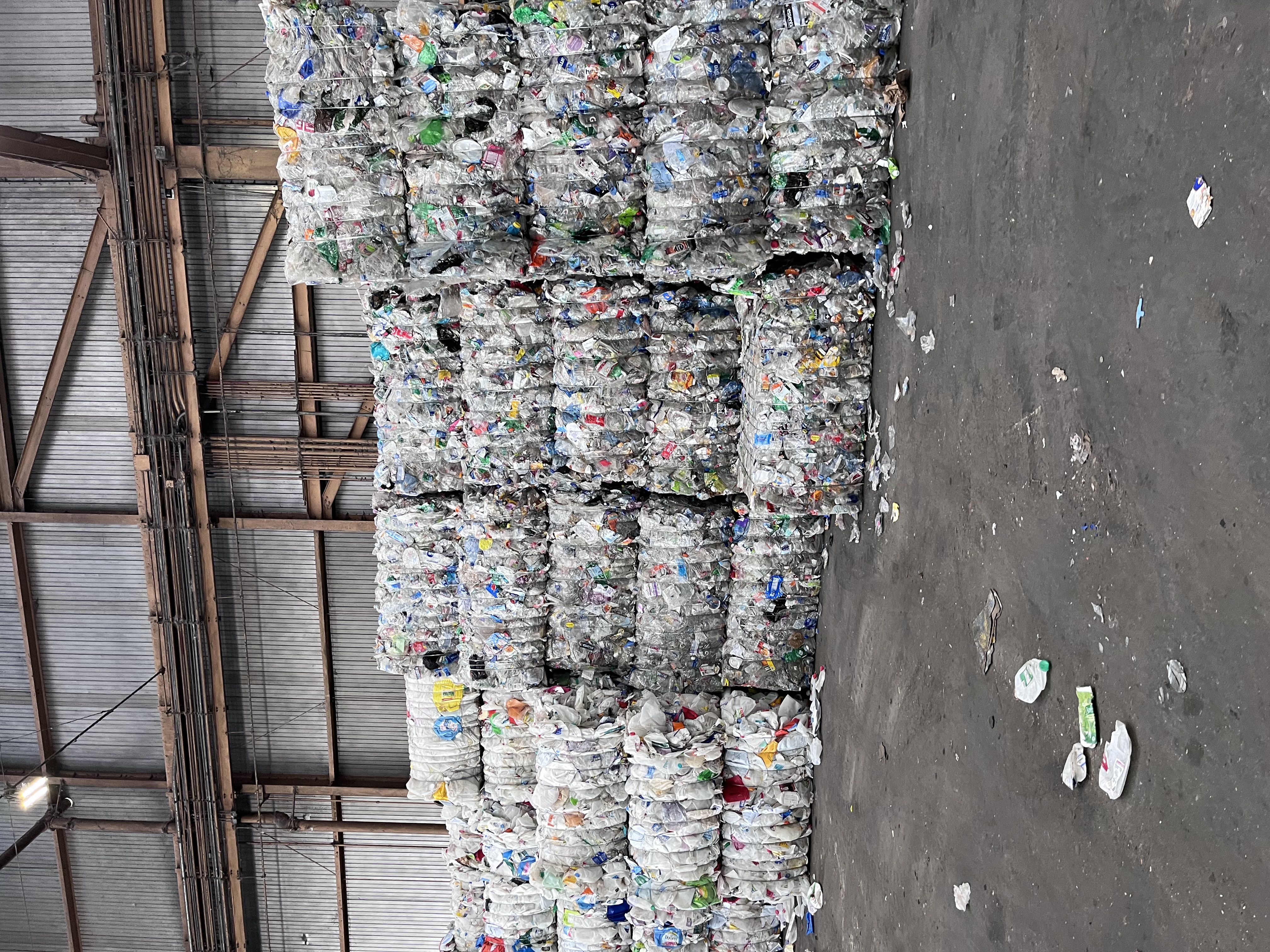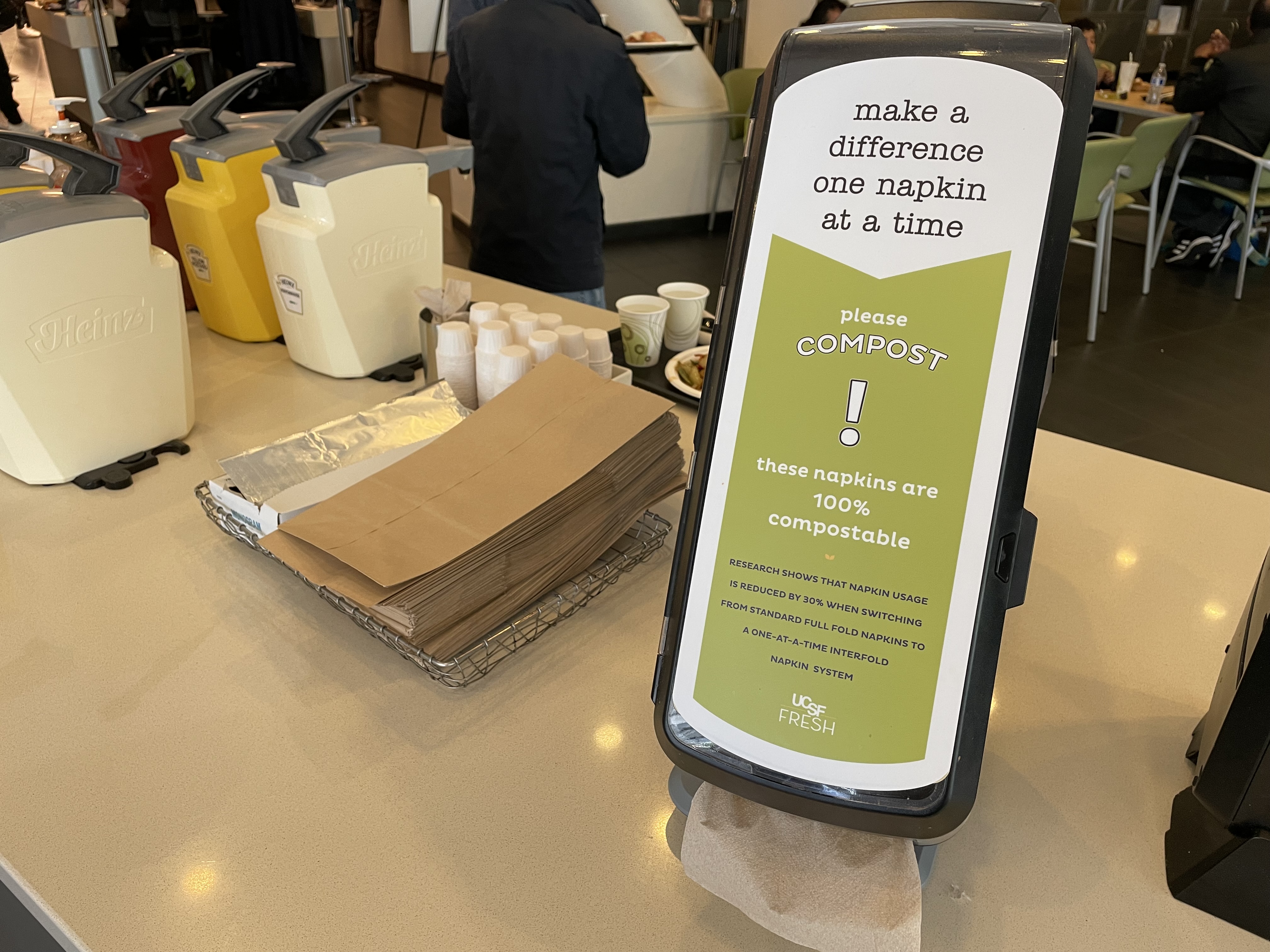UCSF Health has a zero-waste goal of achieving 50% diversion of waste, which means sending waste to compost and recycling instead of landfill, by 2025. Additionally, as part of a University of California Health waste reduction initiative, UCSF Health has committed to reducing waste production by approximately 85 tons in fiscal year 2024, and we need your help! That is why we are encouraging everyone to participate in Plastic Free July!
The problem with plastic:
 Bails of plastic at the Recology recycling center.
Bails of plastic at the Recology recycling center.
All plastics come from fossil fuels, which require harmful drilling to produce and cause pollution that impacts both environmental and human health. Most disposable plastics are only used for a few minutes before being tossed, never to be used again. Plastic can take up to 500 years to break down, meaning it will outlive you and future generations.
Despite the fact that some hard plastics can be recycled, most plastic that ends up in the recycling doesn’t get turned into anything else, and if it does, it is downgraded to a lower quality of plastic, in a process called “downcycling.” Thin plastics on the other hand are not recyclable at all and can clog recycling machines and delay operations when they end up in the recycling stream.
Additionally, non-single-use plastics, such as synthetic clothing and dish sponges can release microplastics, which make their way into our waterways and the environment. When plastic ends up in the environment, it releases toxic chemicals.
The best way to help the plastic problem is to reduce the amount you use. Keep reading to find ways to reduce plastic use, both while at the hospital and in your everyday lives.
Actions to take at the hospital:
-
 Single-dispense napkins and aluminum foil at the
Single-dispense napkins and aluminum foil at the
Mission Bay medical center dining area.
Think before you take! When grabbing disposable plastic goods, assess whether or not you really need them.
- UCSF has single-dispense utensils and napkins in place
- Bring your lunch in a reusable container (or buy a meal served on compostable paper plates in our dining areas) instead of purchasing a plastic-packaged lunch.
- Use aluminum foil (which is infinitely recyclable!) to wrap your food instead of plastic wrap (which is not recyclable and belongs in the landfill).
- Aluminum foil is available in the UCSF cafeterias
- Bring a utensil kit with you instead of using a disposable plastic version.
- Use a reusable water bottle instead of using paper cups that are lined with plastic!
- UCSF has many water bottle refill stations
- Bring a reusable coffee mug!
- Choose snacks that come in paper packaging instead of plastic!
Actions to take at home:
-
 Child using a bamboo toothbrush.
Child using a bamboo toothbrush.
Credit: Ketut Subiyanto
Use reusable, plastic-free snack and sandwich bags, or beeswax wrap!
- Swap your plastic toothbrush for a bamboo one, and toothpaste tubes for toothpaste tablets
- Swap out shampoos and other shower soaps with bar versions
- Swap liquid laundry and dishwasher detergent for a plastic-free, dry version
- Swap out plastic sponges for a plastic-free sponge or dishcloth!
- Bring reusable bags with you while shopping
- Go to a plastic-free store:
- Simple is a neighborhood eco-market located on Stanyan Street near the Parnassus Medical Center
- Rainbow is a zero-waste grocery store located in the Mission District
- Fillgood is a plastic free zero waste refill store located in Berkeley and delivers all over the Bay Area
- You can also search for “zero waste stores near me” to find more options!
Other tips:
- Plastic-free alternatives can be expensive, but they don’t have to be! Check out this eco alternatives store for cheap plastic-free switches: https://ecoternatives.co/collections/all
- But remember, it’s best to already use what you have! Tossing usable plastic goods so you can switch to eco-friendly versions contributes to the waste problem.
- A good way to assess how much plastic you really use is to save a jar or box of all the plastic waste you produce in the month of July. Doing this can be very eye-opening about the real scale of the plastic problem.
Help UCSF Health reach its ambition waste diversion and reduction goals. Participate in Plastic Free July!